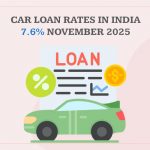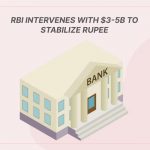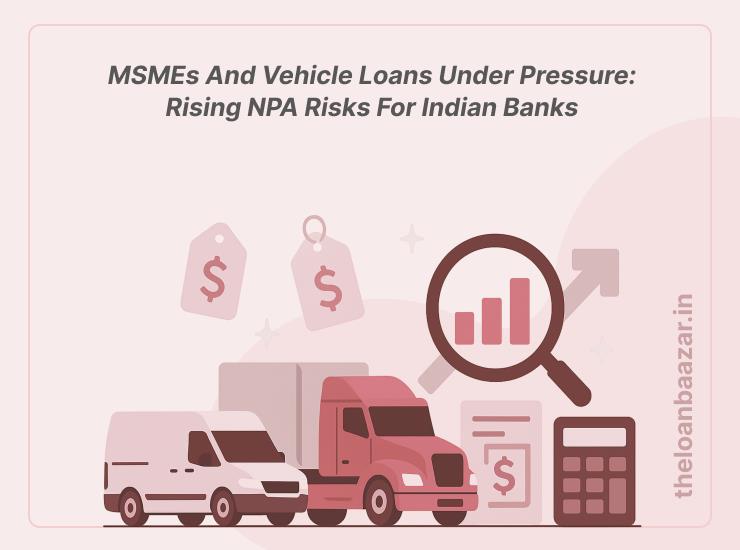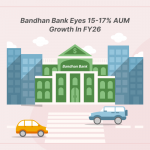Indian banks and NBFCs are witnessing rising stress in MSME and vehicle loan segments, increasing the risk of NPAs in 2025. This article explores the causes, industry impact, and strategies for managing credit risks to ensure financial stability.
MSME and Vehicle Loan Stress: Rising NPA Risks in 2025
The Indian banking and financial sector is once again facing growing concerns over asset quality, with Micro, Small, and Medium Enterprises (MSMEs) and vehicle loans emerging as key stress areas. While the economy shows signs of resilience, the combination of rising interest rates, fluctuating demand, and repayment challenges is pushing lenders to reassess their risk strategies.
Rising Stress in MSME Loans
MSMEs are the backbone of India’s economy, contributing nearly 30% to GDP and employing millions. However, many small businesses continue to struggle with post-pandemic recovery, uneven cash flows, and delayed payments from larger corporations. These factors are leading to increased defaults on MSME loans, raising concerns about a surge in non-performing assets (NPAs) within this critical segment.
Vehicle Loan Segment Faces Headwinds
Vehicle financing, particularly for commercial vehicles, is showing signs of strain. High fuel prices, increased operational costs, and slowing freight demand have impacted repayment capacity for borrowers. As a result, NBFCs and banks that have significant exposure to vehicle loans are reporting early warning signs of delinquencies.
Broader Impact on Financial Institutions
The stress in MSME and vehicle loan portfolios comes on top of existing pressure from unsecured personal loans, credit cards, and microfinance lending. If left unchecked, this could increase the overall NPA burden on banks and NBFCs, affecting credit availability and profitability in the long term.
Banks’ Response and Risk Management
To mitigate these risks, financial institutions are tightening credit underwriting standards, increasing provisions for potential NPAs, and leveraging AI-driven credit monitoring systems. Additionally, regulatory bodies are closely monitoring the situation, encouraging lenders to adopt more robust risk assessment models.
Way Forward
-
For Lenders: Enhanced due diligence, early warning systems, and diversified portfolios can help mitigate loan defaults.
-
For MSMEs: Adopting digital payment solutions, better cash flow management, and accessing government credit support schemes are critical.
-
For Policy Makers: Strengthening credit guarantee frameworks and ensuring timely support for struggling businesses will be key in stabilizing this sector.
Conclusion
The rising stress in MSME and vehicle loan segments is a reminder of the delicate balance between credit growth and financial stability. While India’s growth story remains strong, banks and NBFCs must navigate this phase with caution, innovation, and resilience. Addressing these risks today will safeguard the stability of the financial ecosystem tomorrow.
“How do you see the future of MSME and vehicle loans in India? Share your thoughts in the comments below, and don’t forget to follow us for more insights on banking, finance, and economic trends.”













